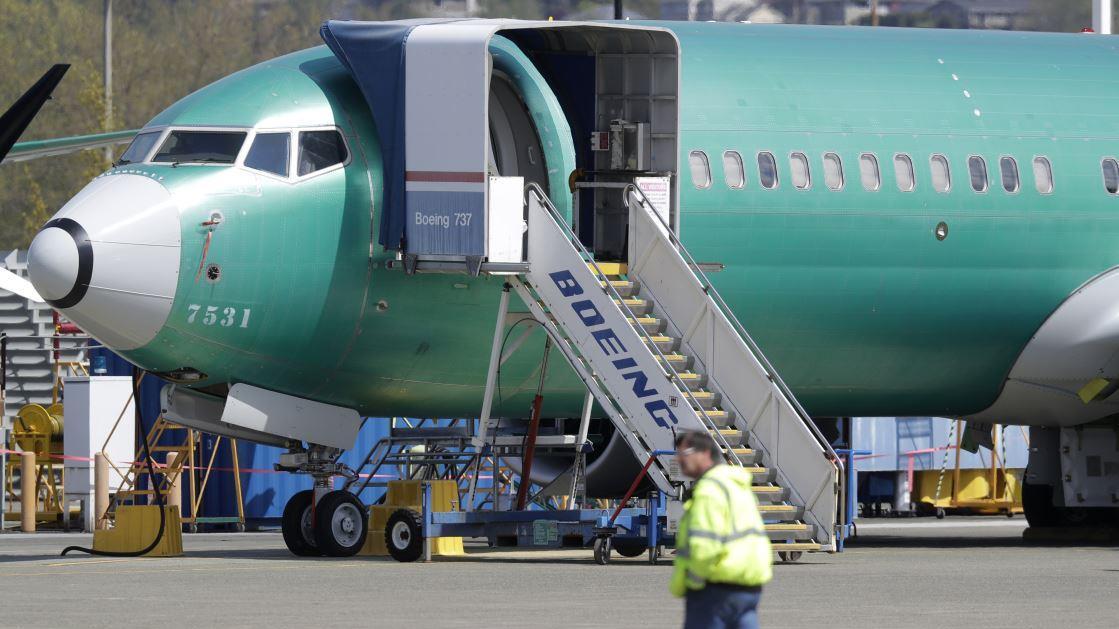Boeing's all-star board bears blame for flawed corporate culture: Experts
U.S. aerospace and defense company Boeing is still in damage control mode as its best-selling jet remains banned from the skies – but if it is to really turn over a new leaf, experts say it may want to consider shaking up its board of directors.
Boeing is reeling from two fatal 737 Max jet crashes – in Oct. 2018 and March 2019 – that resulted in the deaths of 346 passengers. Engineering issues have been called into question as a potential cause of the crashes. Its stock closed up more than 1.5 percent Thursday -- following reports that the plane manufacturer was not responsible for the crash of a Boeing 737 jet operated by Ukraine International Airlines on Wednesday. Indications are that it was shot down by the Iranian military.
| Ticker | Security | Last | Change | Change % |
|---|---|---|---|---|
| BA | THE BOEING CO. | 243.03 | +6.08 | +2.57% |
Still, for the better part of a year, the company has received criticism over everything from manufacturing decisions to its response to the crashes. The words have been reflected in the stock performance which is down more than 4 percent over a year ago. The second 737 Max crash -- an Ethiopian Airlines jet - happened on March 10, 2019, five months after a Lion Air crash.
After updating software, crew manuals and pilot training protocols for the 737 Max, Boeing CEO Dennis Muilenburg resigned last month.
But many business experts believe the issues go far deeper than Muilenburg, to a corporate culture precipitated by a board that has largely evaded scrutiny throughout the entire situation.
BOEING RECOMMENDING PILOTS OF 737 MAX RECEIVE SIMULATOR TRAINING
Nell Minnow, Vice Chair of ValueEdge Advisors, holds the board of directors at Boeing “completely responsible for the failures at the company.”
“The move from a manufacturing mindset, based on quality and safety, to a finance mindset, based on accounting was something they approved and supported — and encouraged via the incentive compensation they designed,“ Minnow, who was once dubbed “the queen of good corporate governance,” told FOX Business.
Boeing’s best-selling 737 Max jet traces its origins back to the 1960s. The company was considering building an entirely new aircraft in 2011 but competitive pressure from rival Airbus reportedly led the company to just update its current model instead. That decision – along with bigger engines – made the plane more likely to stall, which the company patched over with software that pushes the plane’s nose downward under certain circumstances. It is believed that this software – which many pilots claimed they did not know about – is what contributed to the fatal crashes.
GET FOX BUSINESS ON THE GO BY CLICKING HERE
Minnow added that everything from the poor handling of whistleblower concerns about potential problems with the jet to the slow response after the first crash all “point to the board as the problem.”
The board is packed with a number of high-profile members, including Amgen CEO Robert Bradway, the Seventh Vice Chair of the U.S. Joint Chiefs of Staff, Admiral Edmund P. Giambastiani Jr., Duke Energy chair Lynn Good, former U.S. Ambassador to the United Nations Nikki Haley, former U.S. Ambassador to Japan Caroline Kennedy and former Allstate CEO Edward Liddy.
But while the board is loaded with powerhouse names, it may lack one critical factor – relevant experience.
“The board didn’t have the level of broad range of expertise that would’ve made them more sensitive to these issues earlier on,” Charles Elson, the Edgar S. Woolard, Jr., Chair in Corporate Governance at the University of Delaware, told FOX Business. “A refreshing of the board is probably a good idea at this time.”
Elson said – assuming the board was aware of the issues and Muilenburg had not hid anything from them – they absolutely bear some of the responsibility for what has transpired.
The average amount board members earned in 2018, according to the Los Angeles Times, was $345,480.
Meanwhile, Boeing's issues are ongoing. The Federal Aviation Administration has yet to clear 737 Max jets, which will remain grounded in the interim.
BOEING BOUNCES BACK AFTER PENTAGON SAYS IRAN LIKELY SHOT DOWN UKRAINE PLANE BY MISTAKE
The company has not only lost billions of dollars over the grounding and halted production of 737 MAX aircraft, but it has also begun to lose the trust of its commercial customers and passengers – which once comprised the backbone of its solid brand reputation.
“That was the Boeing brand … safety,” Elson said. “What they’ve managed to do in this period of time is seriously affect their reputation for safety … that is potential destruction of a brand.”
And perhaps another question for the company as it struggles to regain its footing with customers, regulators and passengers, is what changes it expects to glean out of naming a replacement CEO – David Calhoun – who was on the board during the entire debacle.
“There was a cultural problem that has been identified – how can you fix the culture with someone who had been part of the culture?” Elson asked. “He was just as part of things as the old CEO and he supported the old CEO for a long time. And that’s the danger.”
Calhoun said in a statement in October that the board had “full confidence” in Muilenburg as CEO. Calhoun served as Senior Managing Director and Head of Private Equity Portfolio Operations at The Blackstone Group since 2014. He previously worked at Nielsen and General Electric.
CLICK HERE TO READ MORE ON FOX BUSINESS
A spokesperson for Boeing has been contacted for comment by FOX Business.





















